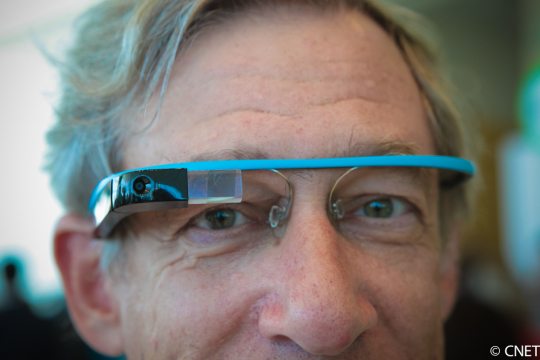For Google, hardware is the new black

The first day of Google's I/O developer powwow revealed some serious hardware ambitions. Hardware is quite fashionable at Google, but analysts warn that there are significant operational risks and matching Apple is going to be much harder than it looks.
Day one of Google I/O featured Google Glass---and perhaps the best stunt demo ever---Nexus Q, a home entertainment orb, and Nexus 7, a tablet to compete with Amazon's Kindle Fire. Google is manufacturing the Nexus Q, prototyping Google Glass and partnering with Asustek on the Nexus 7. And don't forget Google also manufactures cable set-top boxes and smartphones via Motorola Mobility.

No matter how you slice it search advertising is going to be far more profitable than hardware. Apple envy doesn't come cheap.
More: Bott: Google's Nexus Q takes on Microsoft, Apple in the living room | Google I/O 2012: Android Fireside Chat | Google Glass: Should developers buy a $1,500 deep prototype? | Google's Android 4.1 Jelly Bean: Sign of dev maturity, market share
Given this hardware fetish is relatively new at Google it pays to hang back and watch. There's no need for big pronouncements. Just because a company thinks hardware is the new black doesn't mean it can wear it well.
While the company made a number of new product announcements, our overall investment thesis remains unchanged. We were impressed by the coolness of Glasses (the skydiving demo was perhaps the greatest ever in tech). On the other hand, the Nexus 7 is nice but it doesn’t change the game versus Apple or Amazon, in our view. We continue to think the hardware business is going to be harder to manage then the consensus believes. Motorola Mobility could bring both margin compression and dilution if Google gets aggressive in pricing devices, as with the $199 Nexus 7.
Om Malik noted that Google is basically competing with everyone now. History shows us that multifront wars are really tough to win.
CNET: Editors' take: Nexus 7 gets price, performance right | Pictures: Nexus 7 hands-on | Join us for the Google I/O 2012 Day 2 keynote (live blog) | Google I/O Day One: Google continues attacks on Apple, Amazon | Full Google I/O coverage
And how does Google fare when everyone is a hardware vendor too?
Maynard continued:
Google's challenge is how to navigate through an increasingly complex competitive landscape. In our view, many of today’s announcements make it clear that Google is entering established markets which carry lower margins and many tough competitors. Of today's announcements, most represent direct challenges to Apple, Amazon and/or Facebook. These include Android’s improved voice activated typing (vs. Apple’s Siri); the Nexus 7 tablet (vs. iPad/Kindle Fire); the Nexus Q (vs. Apple TV/Sonos); partnerships for improved media content available for rent or purchase (vs. iTunes/Amazon Prime) and the launch of Google Events (vs. Facebook). While these challenges may be strategically necessary, in our opinion, we think they may also prove expensive and challenging for Google to win.
Some analysts such as Anthony DiClemente at Barclays Capital have argued that Google's foray into low-end tablets with the Nexus 7 could lower traffic acquisition costs if the search giant gets market share. "If the Nexus 7 can take share of the broader tablet market, it could help Google to reclaim some of the traffic acquisition costs (TAC) that it is paying on an increasing amount of search traffic coming through tablets, particularly the iPad," said DiClemente.
DiClemente's theory is sound, but the jury is way out on whether the Nexus 7 will be a hit. Google lacks the distribution of Amazon, which can plug the Kindle Fire on its store at will.
Sterne Agee analyst Shaw Wu noted:
With the acquisition of Motorola Mobility and more direct entrance into the tablet market, we see Google becoming more of a more vertically integrated platform play where it is combining hardware, software, and services, similar to Apple and IBM. However, it remains to be seen if Google can deliver the same level (or higher) of quality and seamless integration.
Google's third quarter report in July will shed light on its great hardware experiment. Analysts are already adjusting estimates on the lower profit hardware margins Motorola Mobility brings to the table.